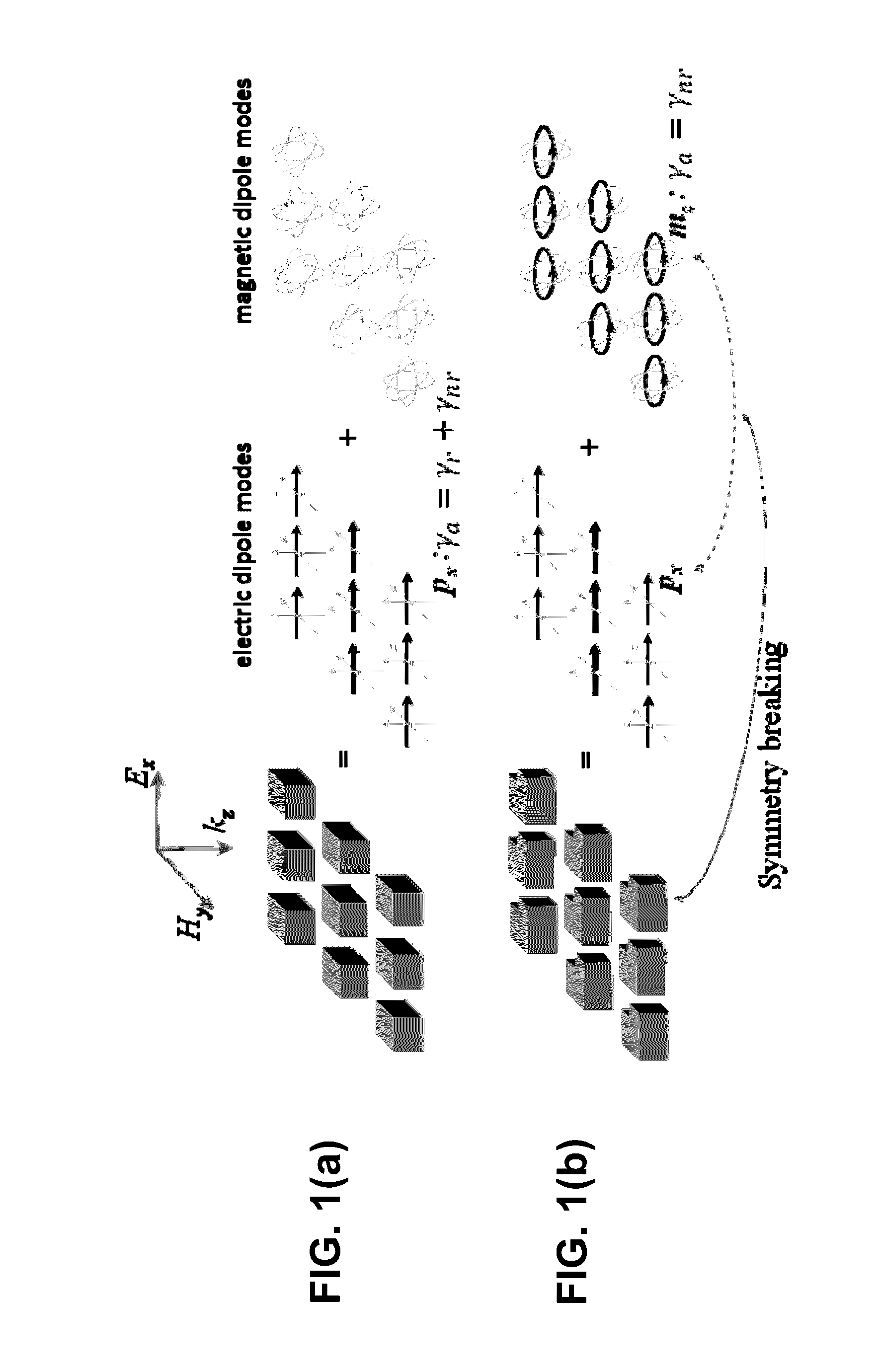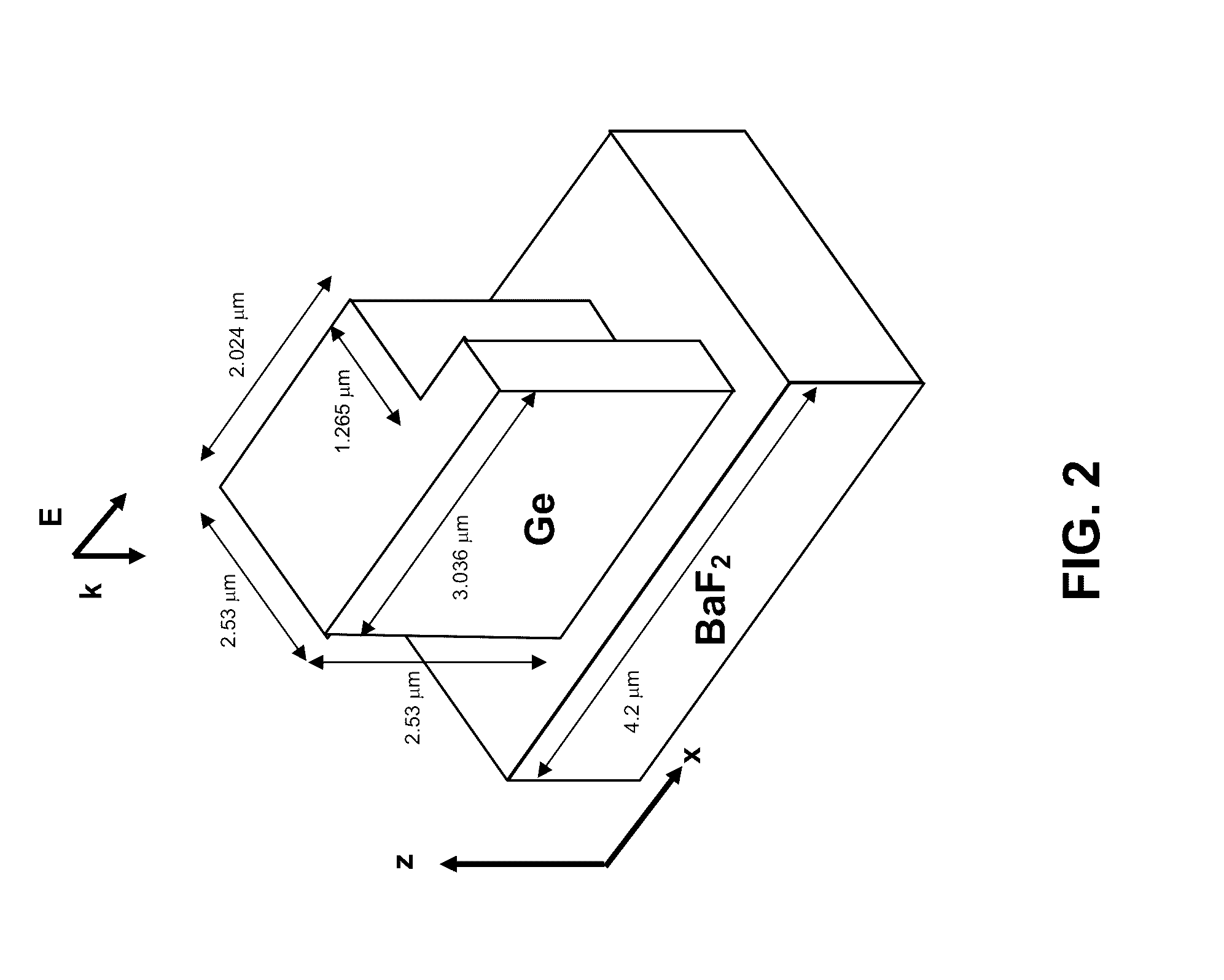High quality-factor Fano metasurface comprising a single resonator unit cell
a fano and metasurface technology, applied in the field of metals, can solve the problems of difficult to obtain narrow (i.e. high quality-factor, q) spectral features, and achieve the effect of high q-factor resonance and high quality-factor fano resonances
- Summary
- Abstract
- Description
- Claims
- Application Information
AI Technical Summary
Benefits of technology
Problems solved by technology
Method used
Image
Examples
Embodiment Construction
[0020]Dielectric resonators are generally fabricated from high permittivity materials, such as Te, Ge, GaAs, Si, or PbTe, so that the dimensions of the resonator are smaller than the free-space wavelength at the resonator's resonant frequencies. Dielectric resonators are generally fabricated using symmetric geometries such as cubes or spheres. However, a symmetric geometry is not required provided the resonator supports an in-plane dipole mode (electric or magnetic) that can couple to incoming and outgoing plane waves. The resonant modes of symmetric resonators are orthogonal and do not couple to each other. However, certain classes of perturbations to the resonator geometry can induce coupling between the otherwise orthogonal modes. For example, one of a cubic resonator's side walls can be tilted (either in-plane or out-of-plane), or a notch can be cut near one edge of the resonator. Other geometric perturbations are possible. In addition, the perturbation can utilize other dielect...
PUM
 Login to View More
Login to View More Abstract
Description
Claims
Application Information
 Login to View More
Login to View More - R&D
- Intellectual Property
- Life Sciences
- Materials
- Tech Scout
- Unparalleled Data Quality
- Higher Quality Content
- 60% Fewer Hallucinations
Browse by: Latest US Patents, China's latest patents, Technical Efficacy Thesaurus, Application Domain, Technology Topic, Popular Technical Reports.
© 2025 PatSnap. All rights reserved.Legal|Privacy policy|Modern Slavery Act Transparency Statement|Sitemap|About US| Contact US: help@patsnap.com



